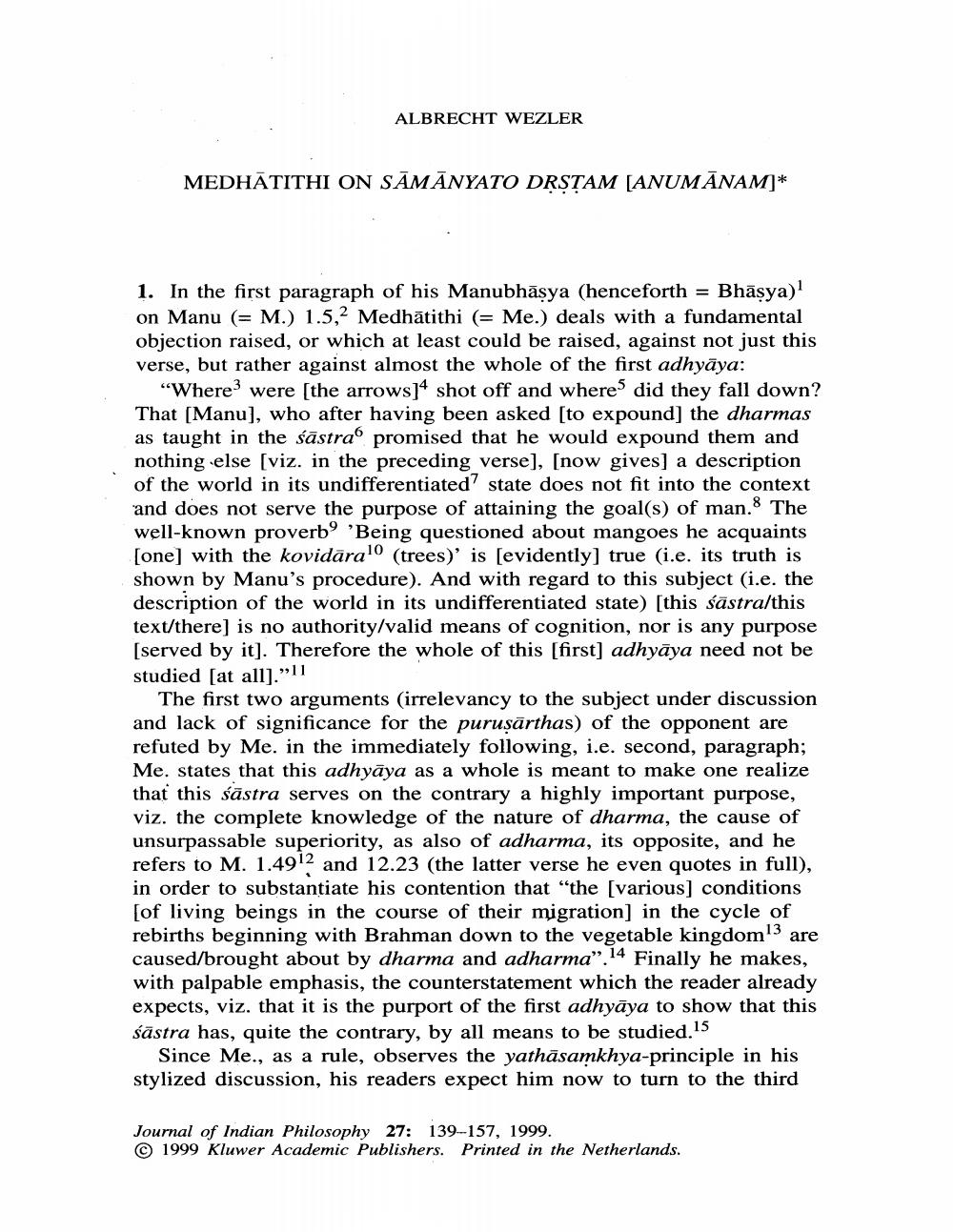Book Title: Medhatithi On Samanyato Drstam Author(s): Albrecht Wezler Publisher: Albrecht Wezler View full book textPage 1
________________ ALBRECHT WEZLER MEDHATITHI ON SĀMĀNYATO DRSTAM (ANUMĀNAM* 1. In the first paragraph of his Manubhāsya (henceforth = Bhāsya) on Manu (= M.) 1.5,2 Medhātithi (= Me.) deals with a fundamental objection raised, or which at least could be raised, against not just this verse, but rather against almost the whole of the first adhyāya: "Where were [the arrows]4 shot off and where did they fall down? That (Manu), who after having been asked [to expound] the dharmas as taught in the śāstra promised that he would expound them and nothing else (viz. in the preceding verse], [now gives] a description of the world in its undifferentiated state does not fit into the context and does not serve the purpose of attaining the goal(s) of man. The well-known proverb 'Being questioned about mangoes he acquaints [one) with the kovidāra (trees)' is [evidently] true (i.e. its truth is shown by Manu's procedure). And with regard to this subject (i.e. the description of the world in its undifferentiated state) [this śāstra/this text/there] is no authority/valid means of cognition, nor is any purpose [served by it). Therefore the whole of this [first] adhyāya need not be studied [at all].”:11 The first two arguments (irrelevancy to the subject under discussion and lack of significance for the puruşārthas) of the opponent are refuted by Me. in the immediately following, i.e. second, paragraph; Me. states that this adhyāya as a whole is meant to make one realize that this śāstra serves on the contrary a highly important purpose, viz. the complete knowledge of the nature of dharma, the cause of unsurpassable superiority, as also of adharma, its opposite, and he refers to M. 1.4912 and 12.23 (the latter verse he even quotes in full), in order to substantiate his contention that "the (various] conditions [of living beings in the course of their migration) in the cycle of rebirths beginning with Brahman down to the vegetable kingdom13 are caused/brought about by dharma and adharma”. 14 Finally he makes, with palpable emphasis, the counterstatement which the reader already expects, viz. that it is the purport of the first adhyāya to show that this śāstra has, quite the contrary, by all means to be studied.15 Since Me., as a rule, observes the yathāsamkhya-principle in his stylized discussion, his readers expect him now to turn to the third Journal of Indian Philosophy 27: 139-157, 1999. © 1999 Kluwer Academic Publishers. Printed in the Netherlands.Page Navigation
1 2 3 4 5 6 7 8 9 10 11 12 ... 19
